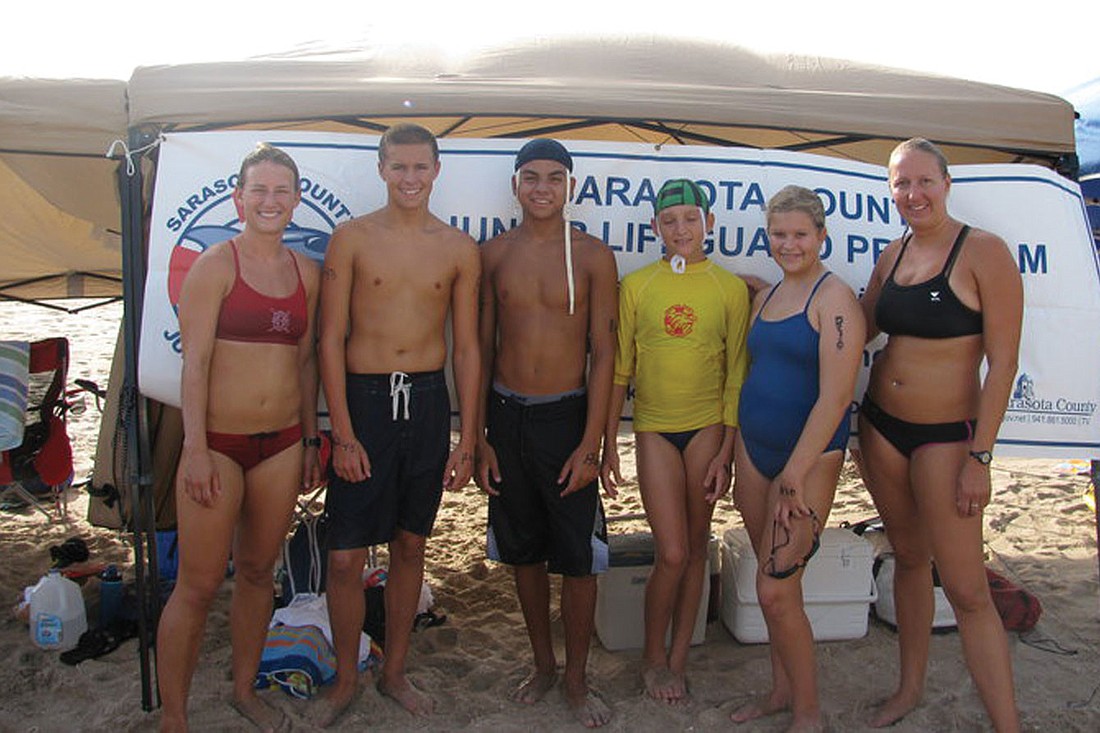- November 28, 2024
-
-
Loading

Loading

Sarasota County Junior Lifeguard Program staff decided to shrink its five-hour sessions to four hours this summer because that’s a long time to keep kids focused, said beach patrol captain Roy Routh.
Given the active nature of the summer camp, which ran for two two-week sessions this summer, the site on Siesta Key can tire even the liveliest youth.
“They’re not sitting in the A/C,” Routh said. “They’re in and out of the water — they’re wet, and they’re sandy.”
Both are important to the program’s aim to educate participants in every facet of a lifeguard’s job, from environmental and biological sciences to rescue operations. This summer drew more campers than in 2011, as well as more teenagers, County Parks and Recreation Manager Carolyn Brown said during an Oct. 4 Siesta Key Association meeting.
“I kind of look at this as a farm system for lifeguards,” Routh said. One camper, 17-year-old Jarrett Quinn, spent three summers as a junior lifeguard and was one of the instructors this year.
Campers leave the program with cardiopulmonary resuscitation certification and knowledge of area beaches provided by camp coordinators and guest speakers, some of which are provided by Mote Marine Laboratory. That makes alumni prime candidates for lifeguard positions. That’s something program coordinators ramped up with this year’s offering.
“We know who they are, and we know they’ve been trained through us,” Routh said. County Administrator Randall Reid has stressed the need to snare talent as the economy improves pulling people into private-sector work.
Junior lifeguard program coordinators this year expanded the camp from a single three-week session and added emphasis on first-aid training and actual lifeguard operations. In addition to open-water training with “cans” — hard red plastic flotation devices, campers got the chance to “rescue” each other. Instructors showed how the entire emergency-rescue process plays out, from the radio communication to preparing a rescue victim for transportation.
Older campers are closer to an age where they can come back and work as instructors or lifeguards, and Routh guessed word-of-mouth explains the greater number of teenagers this summer.
“I can see others doing it,” Routh said. “When they get into college, my hope is that they’ll apply for summer jobs.”